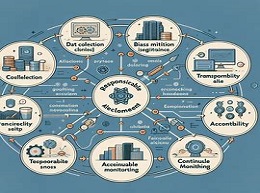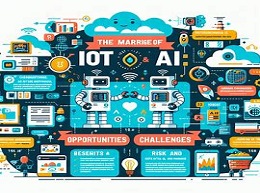Responsible AI: Guidelines for Ethical AI Development

The Importance of Responsible AI Development
As artificial intelligence (AI) continues to permeate various aspects of our lives, ensuring that AI systems are developed and deployed ethically is paramount. Responsible AI development involves adhering to guidelines and principles that prioritize fairness, transparency, accountability, and inclusivity. In this article, we delve into the essential guidelines for ethical AI development, accompanied by real-world examples that highlight the importance of responsible AI practices.
Ethical AI Guidelines
1. Fairness and Bias Mitigation:
- Ensure that AI systems are designed and trained to avoid bias and discrimination against individuals or groups based on race, gender, ethnicity, or other protected attributes.
- Example: Amazon's recruitment tool, which was found to exhibit gender bias in its recommendations, underscores the importance of mitigating bias in AI algorithms to ensure fair outcomes.
2. Transparency and Explainability:
- Promote transparency in AI systems by providing clear explanations of how they make decisions and recommendations.
- Example: The European Union's General Data Protection Regulation (GDPR) mandates transparency and the right to explanation for automated decision-making processes, such as credit scoring or job recruitment.
3. Accountability and Oversight:
- Hold developers and organizations accountable for the ethical implications of their AI systems, including the potential harms they may cause.
- Example: Google's AI ethics board, established to oversee the company's AI projects, disbanded due to controversy over board members' qualifications and concerns about accountability.
4. Privacy Protection:
- Safeguard individuals' privacy by minimizing the collection and use of personal data without consent and ensuring secure storage and processing of sensitive information.
- Example: The Cambridge Analytica scandal, where personal data from Facebook was harvested without consent for political advertising purposes, highlights the importance of protecting user privacy in AI applications.
Real-World Examples
1. Facial Recognition Technology:
- Ethical Concern: Facial recognition technology has raised concerns about privacy invasion, misidentification, and racial bias in law enforcement and surveillance applications.
- Example: The case of Joy Buolamwini, a researcher who discovered that facial recognition systems had higher error rates for darker-skinned and female faces, underscores the need for fair and inclusive AI technologies.
2. Algorithmic Hiring Tools:
- Ethical Concern: AI-driven hiring tools may perpetuate bias and discrimination in the recruitment process, leading to unequal opportunities for candidates.
- Example: Amazon's recruiting tool, which favored male candidates over female ones, demonstrates the potential pitfalls of using AI algorithms in hiring decisions without careful consideration of bias and fairness.
Implementing Responsible AI Development
1. Ethics Training and Education:
- Provide training and education to AI developers, data scientists, and stakeholders on ethical considerations and best practices in AI development.
2. Ethics Committees and Review Boards:
- Establish ethics committees or review boards to evaluate the ethical implications of AI projects and ensure alignment with ethical guidelines and principles.
3. Diverse and Inclusive Teams:
- Foster diversity and inclusion in AI development teams to bring a range of perspectives and experiences to the design and implementation of AI systems.
Building a Responsible AI Future
In conclusion, responsible AI development is essential for building trust, safeguarding individual rights, and promoting societal well-being in an increasingly AI-driven world. By adhering to ethical guidelines, promoting transparency and accountability, and addressing biases and discrimination, we can harness the transformative potential of AI while minimizing its potential harms. As we strive to build a future where AI serves the common good, prioritizing responsible AI development practices is imperative for creating a fair, inclusive, and ethically sound digital society.














